Interactive Memorial Site
Below is an interactive image of a spontaneous memorial site. By hovering over the ⓘ icons, you can learn more about the different types of objects typically left, their cultural or emotional significance, and practical advice for managing them during the collection process. This tool is designed to support practitioners and organisations who may be involved in the care, collection, or interpretation of spontaneous memorials.

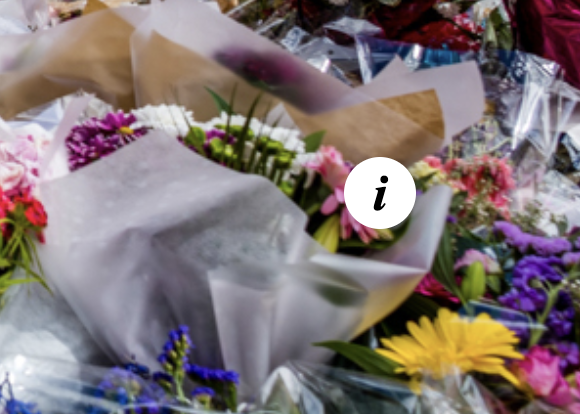
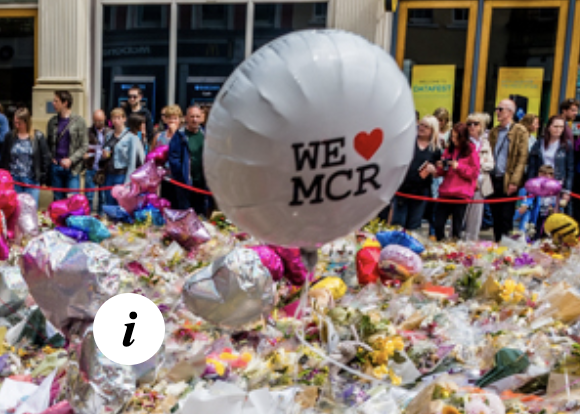
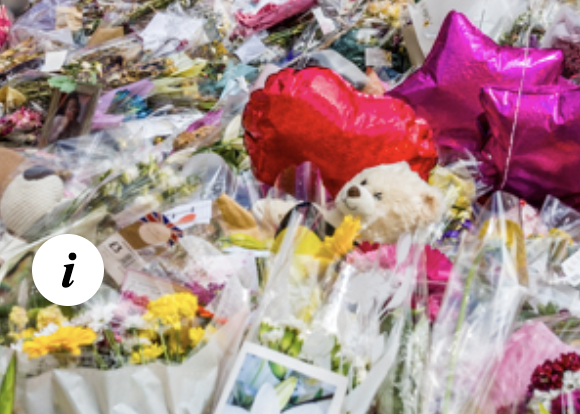
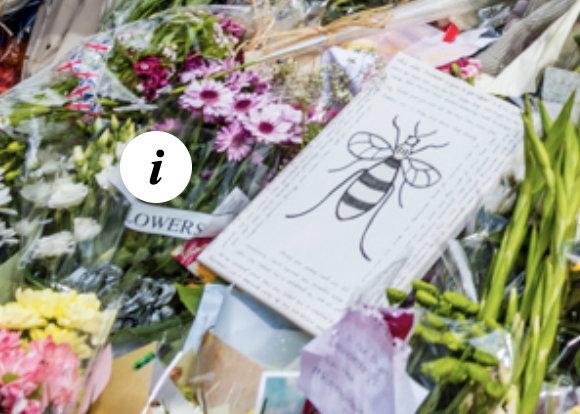
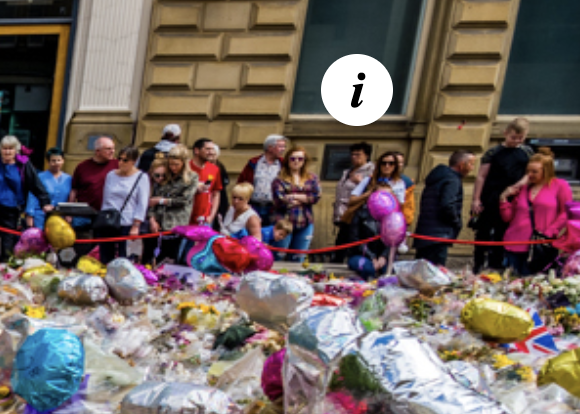
Floral Tributes
As with all organic matter, floral tributes can be collected but storing them long-term can be difficult. In some cases, organisations have collected flowers with a view to use them in other memorial activities, such as pressing the petals and gifting them to bereaved families or composting them (alongside all organic matter) to use in activities such as tree planting etc.
Balloons
As a symbol of remembrance and letting go, balloons can sometimes include personalised or culturally relevant messages, which gives them an added value. Be aware, however, that the material of balloons (typically latex-based) can deteriorate quickly.
Soft Toys
Soft toys are susceptible to weather damage and will dirty easily. In some cases, teams have cleaned soft toys on site (to preserve the appearance of the memorial site itself). In other cases, soft toys have been collected, cleaned and restored by volunteer groups, before being donated to charities. Given their popularity and size, it is difficult to commit to long-term storage. You might find it helpful to be selective (i.e. collect all soft toys but keep only the ones with personalised messages).
Cultural Symbols
After the Manchester arena bombing in 2017, people used the Manchester worker bee symbol as a sign of community strength and resilience. These kind of cultural symbols will appear on a wide variety of objects (i.e. handmade condolence cards, artwork, pebbles and stones, knitted items, clothing etc.) It is therefore important to prepare for a diverse and varied collection.
Barriers
As more and more people come to visit the site, more and more objects will appear. Combine this rapid growth with a sensitive awareness that the community will need time to grieve, you might find it useful to barricade certain areas of the site to protect tributes. In some cases, this can be used to help direct visitors around the site. If decisions around site management do not fall in your remit, it might be helpful to establish a line of communication with the group or organisation involved in this.
